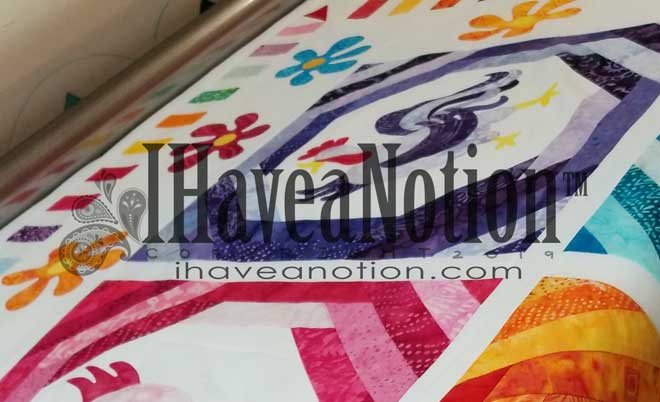
Its been a little sticky and blue In the Creative Space. A picture of the ‘chickens’ loaded on the longarm was in the last post. So far that hasn’t changed, still no thread.
The Sticky
So what about the sticky and blue? I use a lot of fusible products and I try as many as I can find and afford. The favorite is paper backed, because I can draw my design and then transfer to fabric, with very little waste of either. I love Misty Fuse because it stays soft and retains a beautiful drape. Since Misty Fuse is just a web, getting the exact result is more difficult, because you need another way to transfer the marked lines/design to Misty Fuse, which can add another step to the process.
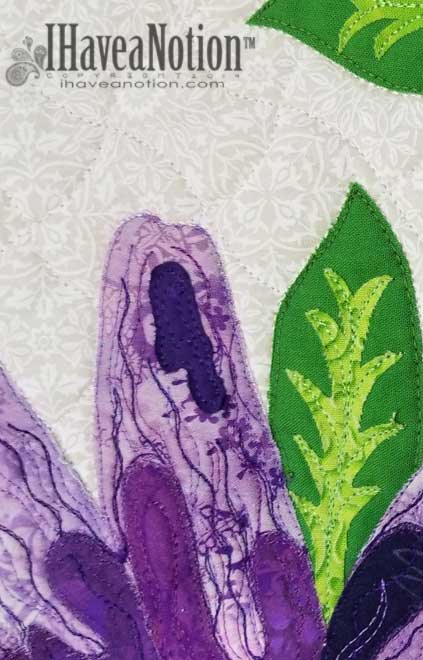
Last year I tried Barely There (the review) and in the store here. The few small things I tried it on worked out for the most part. Except for the occasion, where I forgot to use the correct heat setting on the iron. Oops! I used both Barely There and Misty Fuse on the ‘chicken’ quilt. Barely There for the construction of the chickens and egg flowers. While stitching down the chickens, I discovered some loose pieces. Not completely coming off, but enough that things could have shifted. So a bit more testing was in order.
I was afraid that I may have made an error when I decided that I liked Barely There! What could possibly make a fusible not stick well? The only thing, if all else was done correctly; the proper iron temperature and setting (made that mistake with the gecko) and/or the correct amount of pressing time would be the fabric. What could be wrong with the fabric? With fabric, the manufacturers finish or starch will keep a fusible from adhering well. So I prewashed the fabrics for this piece. Then I printed the pattern on to the Barely There, fused them to fabrics and proceeded. Verdict? Much better stick!
Stick was very important in this case because this piece is raw edge applique using regular quilting cotton, not batiks which have a finer thread and tighter weave. Regular ‘quilting’ cotton tend to have a thick thread and looser weave, making them susceptible to fraying. By prewashing the fabric good stick was achieved and with less fraying on all fabrics!
The Blue
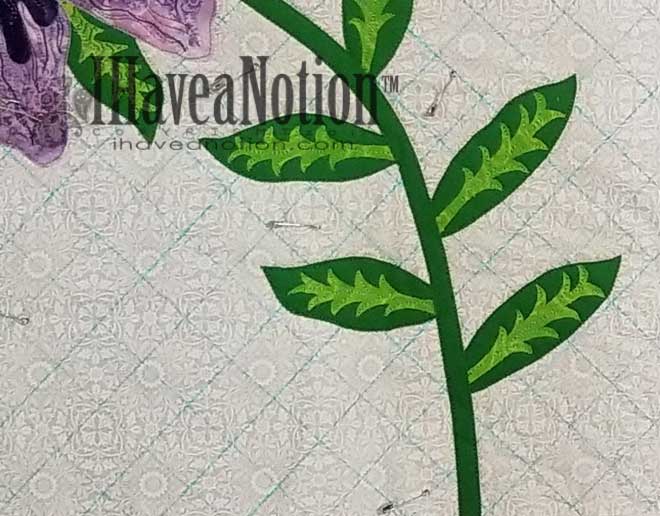
So what about the blue part of the sticky and blue? For the quilting, I drew a grid with a blue washout marker. Getting rid of the grid after quilting these days is the real problem, especially if you don’t always prewash your fabrics, (ask me how I know about this too). I have been sewing and quilting long enough that I remember the marks coming out fairly well with just a spritz if only one layer, and maybe a good wetting if more than one layer, (top, batting, backing). But here lately, you might actually have to submerge a project to get the blue out.
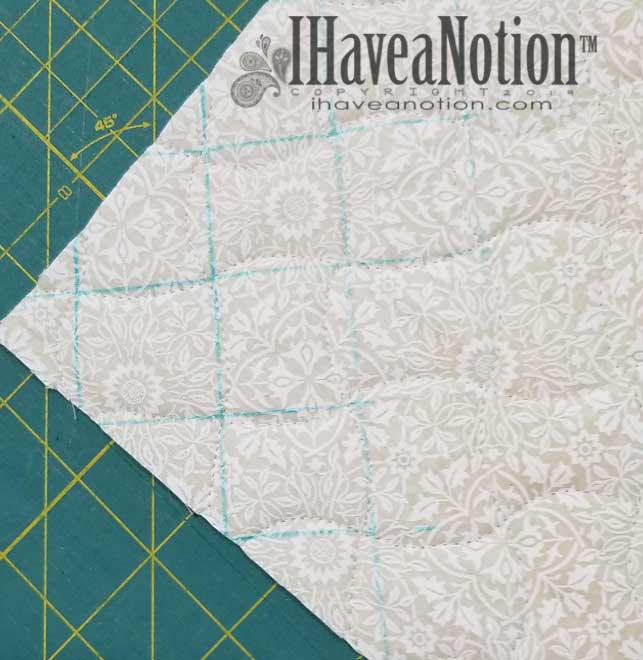
I have used just about every product made to remove the blue, and none of them seemed to work any better than water if they did anything at all. But while surfing, reading blogs and posts on the Internet, Facebook or Instagram, one day- I ran across a tip. Wish I could remember from where and give the kudos and credit and link directly to their page, but I can’t. (edit- I found it!) For the story from the tipper go to www.piecenquilt.blogspot.com I even tried a search and a look back through daily history. But no such luck. If you know who…please tell me, I’ll add it!
The Tip
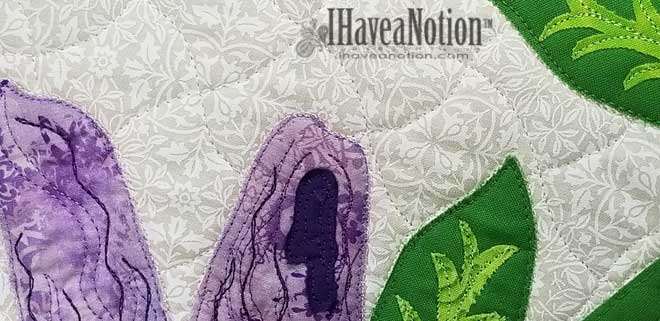
Mix 1 teaspoon of baking soda with 1 cup cold water. Mix well and place in a spray bottle. And then proceed as normal. All the blue came out, no resprays or touch-ups. I left a corner and as you can see, it was a rather thickish line. I used the Mark-B-Gone from Dritz, it makes a thick line but marks fast and for a simple grid, it works great! Going to keep a spray bottle with soda water in it. I suppose a flat
Have you had difficulty getting the blue out? Do you have another method that works well? Please share in the comments if you do!!!
More later-Beth